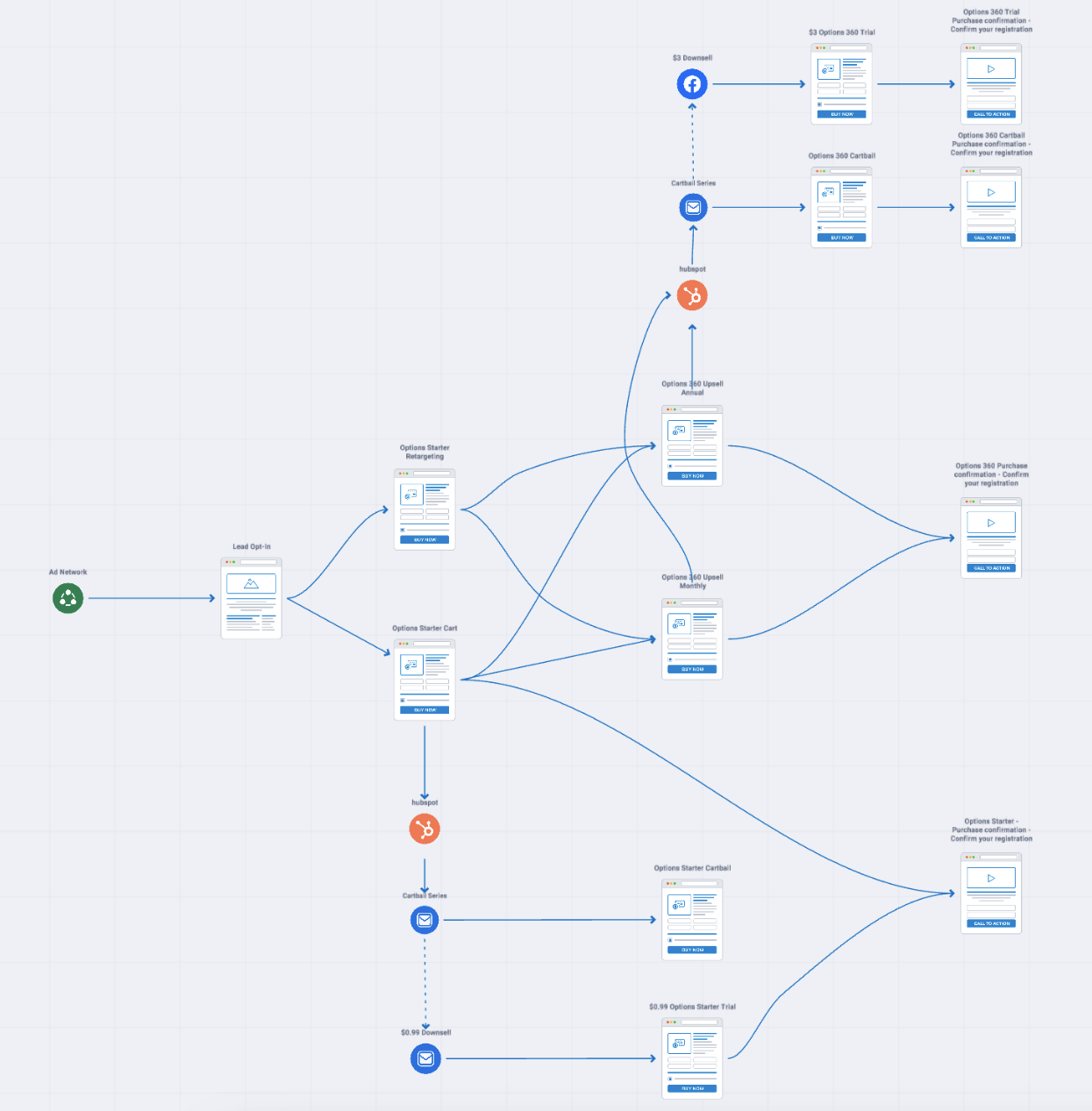In order to stay ahead of your competition, it’s crucial for businesses to have a solid and effective digital marketing strategy in place. However, with the constant changes in technology and consumer behavior, it’s not always easy to keep up and ensure that your strategy is still hitting the mark. That’s where a digital marketing audit comes in handy. A comprehensive digital marketing audit can help you identify what’s working and what’s not, and ultimately guide you in making informed decisions for the future of your business. In this article, we’ll dive into the importance of conducting a digital marketing audit and how to go about it.
Understanding the Importance of a Digital Marketing Audit
Firstly, it’s essential to understand why a digital marketing audit is necessary. Simply put, a digital marketing audit allows you to evaluate your existing digital presence and determine its effectiveness in achieving your business goals. It enables you to identify any areas that require improvement or optimization to help you drive more traffic, generate more leads, and ultimately increase revenue. By conducting a comprehensive audit, you can ensure that your digital marketing strategy aligns with your business objectives and help you make informed decisions about future marketing efforts.
Identifying Your Digital Marketing Goals
The first step in conducting a digital marketing audit is identifying your digital marketing goals. These goals should align with your overall business objectives and guide your marketing strategy. Common digital marketing goals include increasing website traffic, increasing social media engagement, improving search engine rankings, and increasing lead generation. By having clear goals in mind, you can evaluate your existing digital marketing efforts against these targets.
For instance, if your goal is to increase website traffic, you should analyze your website’s traffic sources, bounce rates, and user behavior to determine what’s working and what’s not. This analysis will help you identify any issues that may be causing a decline in traffic and develop strategies to address them. Similarly, if your goal is to increase social media engagement, you should analyze your social media metrics to determine which platforms and content types are resonating with your audience.
Assessing Your Current Digital Marketing Strategy
The next step is to assess your current digital marketing strategy. This includes reviewing your website design and functionality, search engine optimization efforts, social media presence, and content marketing efforts. Conducting a thorough analysis of your digital marketing efforts allows you to identify any gaps or weaknesses in your strategy, which you can then address in your future marketing tactics.
For example, if your website design is outdated and not mobile-friendly, you may be losing potential customers who prefer to browse the internet on their smartphones. Similarly, if your social media presence is sporadic and inconsistent, you may not be effectively engaging with your audience and building brand awareness. By identifying these weaknesses, you can develop strategies to improve your digital marketing efforts and achieve your business goals.
Recognizing the Benefits of a Comprehensive Audit
Conducting a comprehensive audit has several benefits. Firstly, it allows you to identify any areas of your digital marketing efforts that are not working effectively and make changes to improve them. Secondly, it can help you identify new opportunities to leverage your digital marketing presence and drive more traffic and conversions. A digital marketing audit also helps you to stay up-to-date with the latest trends and best practices in digital marketing, which is critical to staying ahead of your competition.
Additionally, a digital marketing audit can help you optimize your marketing budget by identifying which channels and tactics are delivering the best ROI. By reallocating your resources to the most effective channels, you can maximize your marketing impact and achieve better results with less investment.
In conclusion, a digital marketing audit is a critical process for any business looking to improve its digital marketing efforts. By identifying your goals, assessing your current strategy, and recognizing the benefits of a comprehensive audit, you can develop a more effective digital marketing strategy that drives more traffic, generates more leads, and ultimately increases revenue.
Analyzing Your Website and SEO Performance
Your website is the foundation of your digital marketing efforts, making it a critical area to evaluate in your audit. Analyzing your website performance involves assessing both the technical and user experience aspects of your site.
Evaluating Your Website’s User Experience
When evaluating your website’s user experience, consider factors such as page load speed, mobile responsiveness, navigation, and overall design. A user-friendly and engaging site experience can significantly impact your website’s bounce rate and ultimately affect your search engine rankings.
Assessing Your On-Page and Off-Page SEO
Search engine optimization (SEO) is critical to helping your website rank higher in search results. On-page SEO factors include title tags, meta descriptions, header tags, and keyword optimization. Off-page SEO factors include backlinks, social media mentions, and online reviews. Analyzing your SEO performance allows you to identify areas for improvement and optimization to improve your search engine rankings.
Identifying Areas for Improvement and Optimization
Analyzing your website allows you to identify areas that need improvement or optimization. This could include technical issues such as broken links or missing alt tags, or content-related issues such as outdated or irrelevant content. You can use this information to update or optimize your website to improve its user experience and search engine rankings.
Examining Your Social Media Presence
Social media is an excellent way to connect with your audience and promote your brand. However, you need to ensure that your social media presence aligns with your overall business objectives. Evaluating your social media presence means analyzing aspects such as your social media profiles, content strategy, and engagement metrics.
Reviewing Your Social Media Profiles and Strategy
Your social media profiles should be consistent with your brand and messaging. Ensure that your profile images, descriptions, and posts align with your overall marketing objectives. Your social media strategy should also align with your overall marketing goals. Reviewing your strategy allows you to ensure that your content is engaging and resonates with your target audience.
Analyzing Your Social Media Engagement and Reach
Social media engagement metrics, such as likes, comments, and shares, can help you evaluate the effectiveness of your social media strategy. Analyzing this data helps you understand how your content is resonating with your audience and identify opportunities for improvement.
Identifying Opportunities for Growth and Expansion
Examining your social media presence helps you identify opportunities for growth or expansion. This could include exploring new social media platforms or developing more engaging content to reach a broader audience.
Assessing Your Content Marketing Efforts
Finally, evaluating your content marketing efforts helps you understand how your content aligns with your overall marketing goals and identifies opportunities for improvement.
Evaluating Your Blog and Content Strategy
Your blog is an essential aspect of your content marketing efforts. Evaluating your blog involves assessing aspects such as the quality and relevance of your blog content and how it aligns with your marketing goals. Your content marketing strategy should also align with your overall marketing objectives.
Analyzing Your Content’s Performance and Engagement
Examining your content’s performance and engagement metrics, such as time on page and bounce rate, helps you understand how your audience is engaging with your content. Analyzing these metrics allows you to identify opportunities for optimizing your content marketing efforts.
Identifying Content Gaps and Opportunities
Identifying content gaps allows you to develop content that meets the needs of your audience and helps drive traffic and conversions. It also allows you to identify new opportunities for content creation and distribution, such as developing new content formats or trying new distribution channels.
Get a Free Digital Marketing Audit
Conducting a comprehensive digital marketing audit is essential to ensure that your digital marketing strategy aligns with your overall business objectives. By evaluating your website and SEO, social media presence, and content marketing efforts, you can identify areas for improvement or optimization and identify new opportunities for growth and expansion. Keep in mind that technology and consumer behavior are continually changing, so conducting regular digital marketing audits is essential to stay ahead and remain competitive.
If you’re looking for help with your own marketing efforts, we’re here for you. Contact us today to schedule a free digital marketing audit with our team of experts.



